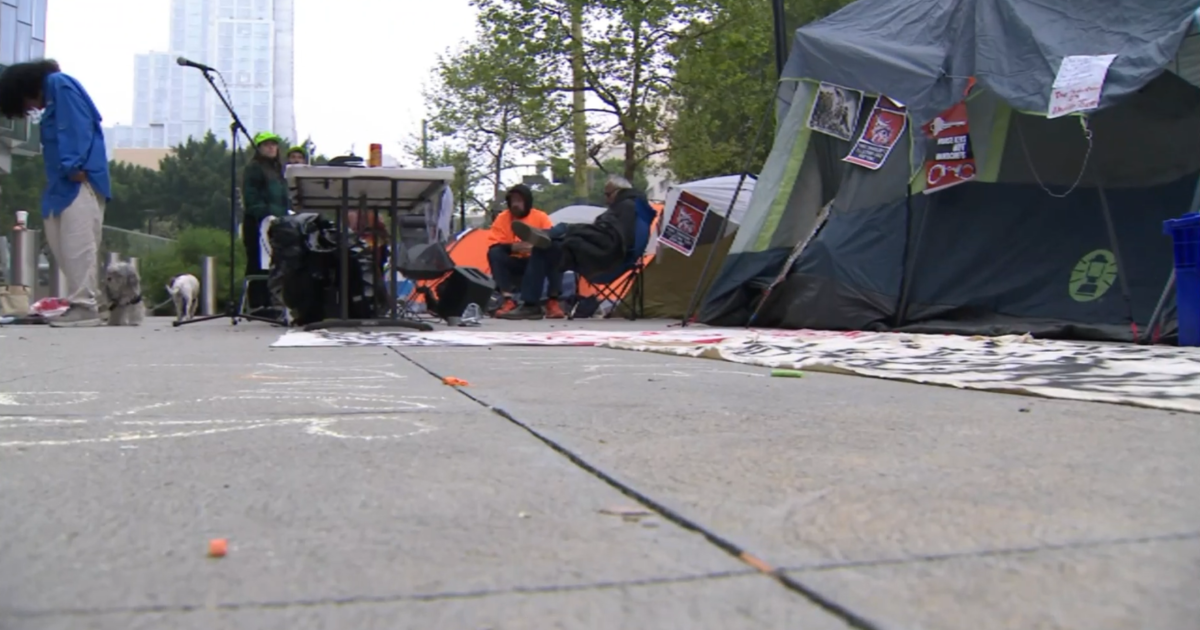If Paroled, Inmate Seeking Sex Change No Longer Eligible For Prison-Funded Operation
SACRAMENTO (CBS/AP) — An inmate who is seeking sex reassignment surgery at taxpayers' expense faces a painful irony: If she wins freedom from a parole board, she would no longer be eligible for the prison-funded operation she says is crucial to her emotional health.
State officials say 51-year-old Michelle-Lael Norsworthy has postponed her parole hearing several times with the hope of having the surgery. They are citing the delays as they appeal a judge's order that she undergo the procedure as soon as possible.
Norsworthy is set for a parole hearing Thursday after four delays in six months. Her surgery is set for July 1 unless delayed by the appeals court.
The state contends the hearing could lead to her release and end her lawsuit seeking the procedure.
"The only factor that seemed to show any type of urgency for Ms. Norsworthy's request was her scheduled parole hearing, which she postponed and might have led to her release, rendering her constitutional claims moot," the state said in its appeal.
Attorneys for Norsworthy say she was not responsible for the hearing delays and, if paroled, she would be eligible for Medi-Cal, which covers medically necessary sex reassignment surgeries.
The "suggestion that she has purposely delayed her parole hearings for some sort of medical advantage is offensive, has no basis in fact, and makes no sense since Michelle, upon release, would much more easily be able to receive the care the state insists on denying her," Ilona Turner, legal director of the Transgender Law Center in Oakland, said in an emailed statement.
A number of inmates have recognized the advantage of having major medical procedures while in prison, said Frank Zimring, a University of California, Berkeley law professor who has studied California prisons for more than 30 years.
"It is precisely the sort of ironic set of incentives and disincentives that are created by the patchwork nature of medical coverage that we have," Zimring said. "In the general society, the care that is provided is considerably less generous."
Estimates of the cost for the surgery and related treatment have ranged as high as $100,000, though Norsworthy's attorneys say that is exaggerated.
The thought of being unable to complete the transformation causes "excruciating pain and frustration," resulting in sleeplessness, cold sweats, hypervigilance, panic attacks and mood swings, Norsworthy said in court documents.
Norsworthy is being held at Mule Creek State Prison, a men's prison in Ione, near Sacramento. Prison records still refer to her by her birth name of Jeffrey Bryan Norsworthy.
Norsworthy was convicted in 1986 for the Nov. 4, 1985 murder of 26-year-old Franklin Gordon Liefer Jr., according to the Orange County District Attorney's Office, which issued a statement Tuesday opposing her parole. Norsworthy argued with Liefer at a Fullerton bar, then left to get a .22-caliber MK1 semi-automatic rifle from his vehicle. The two men struggled for the weapon, and Norsworthy fired it three times.
Prosecutors say one of the bullets went through Liefer's genitals and hit his femoral artery, while another bullet hit his neck, piercing his carotid artery and rendered him a quadriplegic.
Liefer died six weeks later of complications from the gunshot wound.
Norsworthy initially claimed the weapon accidentally discharged twice.
"Norsworthy has not taken responsibility for the crime, and since the inmate incarceration, Norsworthy has accumulated more than 16 prison rules violations including violations for fighting, threatening prison staff and other inmates and possessing dangerous contraband," the Orange County District Attorney's Office said in a statement. "While the inmate has not had any new rules violations since 2009, the inmate's history of violations demonstrates a pattern of misconduct in a controlled environment, which shows the inmate poses an unreasonable risk to danger to public safety."
Her attorneys say Norsworthy has suffered distress and anxiety since adolescence of as a result of gender dysphoria but only realized she needed sex reassignment surgery while she was in prison. She was diagnosed with gender identity disorder in 1999 and began taking female hormones.
She began asking the corrections department for the surgery in 2012 after learning a judge for the first time had ordered Massachusetts to provide an inmate with the procedure. However, that decision was overturned on appeal in December, and the U.S. Supreme Court declined to intervene.
(TM and © Copyright 2015 CBS Local Media, a division of CBS Radio Inc. and its relevant subsidiaries. CBS RADIO and EYE Logo TM and Copyright 2015 CBS Broadcasting Inc. Used under license. All Rights Reserved. This material may not be published, broadcast, rewritten, or redistributed. The Associated Press contributed to this report.)



